By Ed Williams – Member of Asheville Engineers Without Borders
This is part 1 of 2. To read part two, click here.
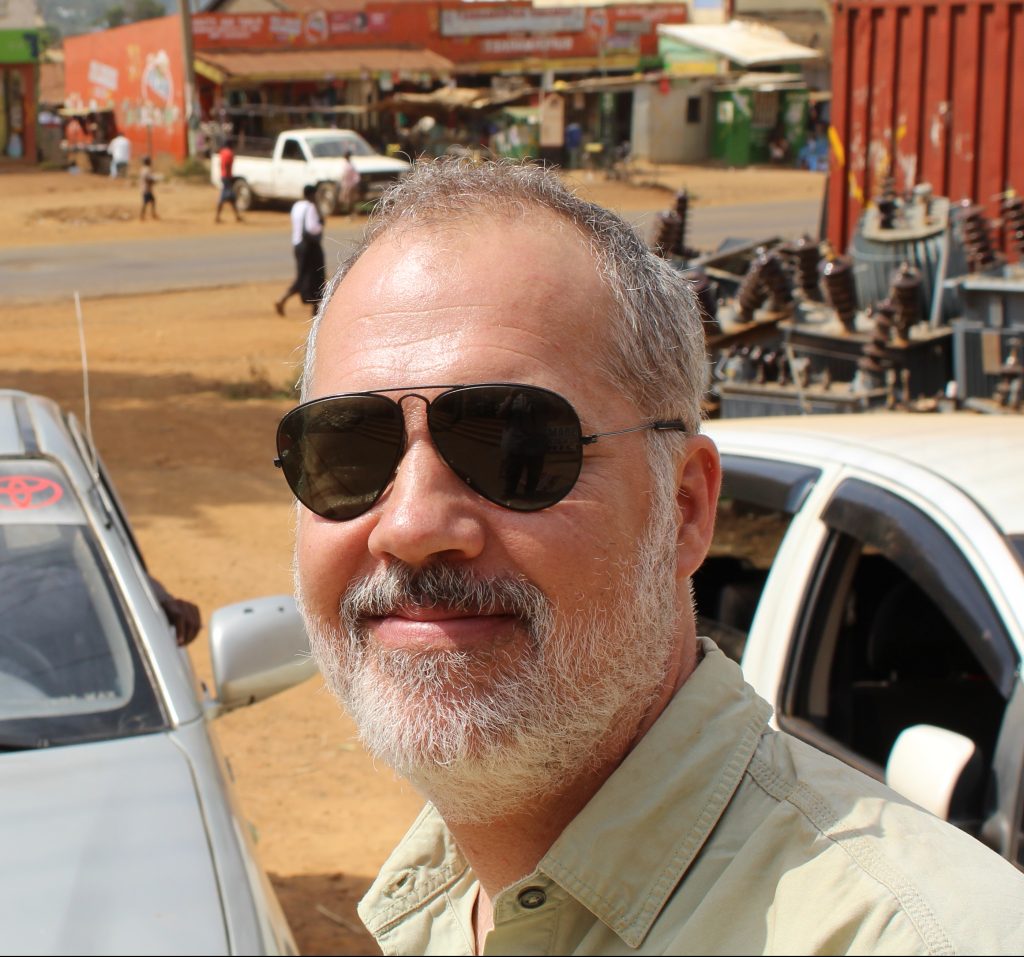
Below are text messages sent to my wife, Cathy, while visiting Kenya, Africa as part of the Asheville Chapter of Engineers Without Borders (EWB) project to construct a medical waste incinerator in the rural Kenyan community of Uluthe. Tim Heim, engineer, co-worker, travel partner, and I were tasked with overseeing the final construction of and training the local health workers in the operation of the incinerator.
On a past EWB project, where a well was installed in the community of Uluthe at the site of the clinic, children were observed fishing a soccer ball out of a pit where medical waste from the clinic is burned. It was then that the need for proper medical waste disposal was identified and the project idea was hatched.
The “De Montfort” incinerator design to be used was developed as an inexpensive but effective incinerator which could be built in almost any developing country, but would meet the criteria of a temperature of above 800 degrees Celsius with a residence time of over 1 second. The small and simple incinerator is easy to operate. A small amount of firewood is used to get the heat up in the incinerator, then the medical waste is added and the heat from the burning of the waste plastics, syringes, etc.. is what brings the unit up to 800 degrees C. Its dual stage combustion destroys both pathogens and toxic organic emissions, making it the most sophisticated waste disposal device in a large region.
03/24/2016—1230
Love you!!! We are sitting on a Kenya Air plane getting ready to take off to Kisumu where George will meet us. The flight from Washington to Addis Ababa was kinda nice. They wined and dined big time. Almost too much food!
03/24/2016—2200
It’s the most intense third world scene ever. Sensory overload. I haven’t had much sleep in last 40 hrs. Going to bed.
03/25/2016—2130
Hi Wifey!! Miss you! Wow, this place is a real eye opener! Where we are is away from the big city but still lots of people and lots going on. Most people get around on foot, next mode of transport is bikes, then motorcycles, then cars and trucks, but it seems like most folks in cars or trucks are conducting some kind of business. Most rely on subsistence agriculture, few in the countryside have electricity or running water. They have to walk to the hand pump wells or worse water sources with big jugs to fill up, then they carry them home on top of their heads or strap them to a bike or motorcycle. Lots of motorcycles are carrying three passengers. All that said, they are the nicest people you’ll meet anywhere and most speak English. You can tell they don’t see many white people and I haven’t seen another white person since we left Kisumu. The children are really interested in us and love to wave and say hello.
Since this was an English colony, you drive on the wrong side of the road and it really is scary chaos. George has been driving the whole time, but I had to drive a little ways a little while ago and was definitely humbled.
The compound we’re staying at is nice compared to surrounding area. We have power some of the time and running water. Shower is cold but that’s welcome. Two ladies, Sara and Jane come in the morning and make breakfast, lunch and dinner. Having three squares is not an African thing but they are nice enough to provide us fat Americans with what they think we need. Dinner tonight was yummy with some good rice, fish and some kind of corn/grits like concoction called ugali. There are chickens, sheep, cows and some wary dogs walking about the compound. It’s a bit hot up in here and we need to keep the windows closed to keep out mosquitos which aren’t too bad, but we still skeered of em. No fans.
Apparently there is a 7th day Adventist church next door having a revival. It’s Easter weekend so festivities must be in full force. Last night it started with some African music coming from a loudspeaker. Kinda nice. I thought I might want to venture on over, but the thought of leaving the compound after dark was too much. Probably wise. Of course by bedtime last night after 40 some hours with little sleep, there’s not much that’s gonna keep me awake. I pass out dead to the world. About midnight or so I’m awoken to it, except I ‘m not fully awoken, more of in a dreamlike/nightmare state where I don’t know where I am. When I start to become conscious, I sit up in bed to only find myself trapped in the mosquito net before I realize where I am and what’s going on. Good times
This morning at breakfast, we told George about our experience and he told us they were 7th day Adventists and were celebrating their Sunday.
Ps: We decided all these first world problem whiners need to spend a month in western Kenya.
03/26/2016—2130
Hi Wifey!! Another big day in Kenya! The project is going well. Tim couldn’t have timed it better. Questions have arisen that needed an engineer’s consultation, so being here during the final stages has been very helpful. The contractor is working hard to meet Wednesday’s deadline and he has lots of workers on-site. Fortunately, Muhammed Ali the contractor, is Muslim, so the Easter holiday when most of Kenya shuts down is not keeping Muhammed from working. Muhammed and his crew are super nice and we have a great positive vibe goin’ at the job site.
The project manager is Suabija. She shows up kinda dressed up in a stylish hijab and silky dress, yet she gets in there and hauls bricks and whatever and keeps the crew on their toes. She’s fun to work with.
Tim and I were working hard today in the hot sun. We were determined to fill in the hole of the old medical waste burn pit. That involved many wheelbarrow loads of dirt. Apparently, there really was an issue with kids sifting through the waste to find something to take home. None of them wear shoes, so the likelihood of cutting their feet on contaminated glass or needles was certainly there.
Today was a holiday so lots of children showed up to watch the activity. I had a lot of fun taking group photos then showing them the photos on the camera screen. They loved it!
We just got back from walking to dinner down the road. The scene was surreal as we walked along the dirt road, motorcycles and people everywhere, a ton of dust in the air with sun setting behind. We were a little scared heading down there, but it turned out to be pretty cool. Had dinner then moseyed on back to the compound for a much needed shower. Tomorrow we are going to attend Easter mass at George’s church. He’s having us over for dinner with his family. We are really enjoying our time here and feel like we’re doing good work.
03/27/2016—2230
Wow, Wifey. Whatta day…. I’m pretty mentally and physically worked from all the goin’s on, but will do my best to write it down while it’s still fresh on the mind.
First thing this morning, Peter, the first grade teacher came by and collected us and we drove to the Catholic Church in the village of Uluthe. As we got near the church, people were walking along the road in their Sunday best carrying chairs, many of them balancing them on their heads. Turns out the church is not quite finished. No pews, dirt floor, very rustic. As we stood outside waiting for George to show up, people would come up to say hello, shake our hands and welcome us to the church. It was really nice. Many women were dressed in beautiful, traditional African dresses with head scarves. Some of the women wore outfits kinda like Mother Theresa. Men wore anything from suits to whatever.
I gotta take a much anticipated shower. Be right back.
So, back to church. We walked in and were seated in some plastic lawn chairs. Then the priest began mass spoken in Luo, the native language of the local tribe. There are 42 tribes in Kenya. Occasionally, he would speak a little English. The mass seemed informal and the priest had more of a dialog with the congregation than a typical Catholic mass. To the side of the pulpit was the choir. Men play drums and other percussion instruments while mostly women sang. It was incredibly beautiful and moving. The congregation would kinda wave our hands back and forth in the air, then break into clapping to the beat. It was all gentle and pretty, not high energy like gospel. At one point they set up some donation boxes, then we all got up and got in line to give a donation. Some brought bags of dried maize. Of course George was called to the front and then he asked us to come up front where he told everyone what we were doing and we told them our names. According to Tim’s calculations, there were about 750-800 people in attendance. At the end we all shuffled outside where we did a lot more meeting and greeting. George bought some sugar cane from a girl and we headed back to our compound to chill awhile.
Once back at the compound George showed us how to peel the cane with our teeth, cut it up and chew it. It was pretty good and considered a social thing. About half way through the chewin’, George got a phone call and he sounded a bit excited talking to his wife. He said we must go, my house is on fire! We jumped in the SUV and hauled down the road to his place. When we got there, smoke was coming from the side of his house. Apparently, the outside breaker box was on fire, so he grabbed a stick and beat it out. Everything except the breaker box was fine, so he called an electrician and we went inside to eat lunch.
After lunch at George’s today, he said let’s go to Ugunja. We needed to stop back by the compound to get a few things. There we ran into another Peter who is the grandson of Mrs. Odera and an engineering student at a college in Capetown, South Africa, home visiting for the holidays. We promised earlier to take him to see the incinerator, so George told him to come along and we would see the incinerator straight away after getting the car fixed. It was cool to get Peter’s young, educated view on things.
We checked out the incinerator, a bunch of kids came to greet us, then we continued on. George said “Do you mind if we do a quick stop at my cousin’s? He’s an engineer and would probably like to chat.” When we pulled up his cousin came out and greeted us with open arms and invited us into his home as everyone we visit does. Inside was a living room full of people and we went around the room greeting everyone individually. We sat down and the women and girls brought out drinks, everyone in their Sunday best. After a while, about half the people left. Turns out they were having a “negotiation” where friends and relatives from a prospective groom come to negotiate a dowry. Actually, it was kind of an informal, maybe a prelude to a negotiation where nothing was actually settled. More like an “introduction”. Interesting nonetheless. Most of the folks visiting were from Nairobi. One of the women was wearing the most beautiful African dress and I told her so and how my wife would be loving it. She said well I’m a fashion designer and make them. I said could you make my wife something like that? We will be in Nairobi next week. She said of course, what is her dress size, height, etc. It’s gonna come with all the accessories. She’s also gonna make me a beautiful knit shirt. She’s bringing it all by our hotel in Nairobi.
Then, they brought out the food. Before eating someone will come around the room with a bowl, soap and pitcher of water to wash your hands. They had a full spread of beef, fish, greens, chapati, and lots of other stuff. We ate our fill, then Peter said get ready, you will have to eat again when we get back to compound! Oh brutha. We got back about 830 after a very long day and sat down to more food and conversation. Experience of a lifetime I tell ya.
03/28/2016—2230
Had another very productive day. We picked George up by the road at his house and went to the clinic/incinerator site. There we met Lucas, primary school teacher and leader of the Uluthe Community Organization. Lucas lost one of his legs back in 2008 while working on one of the local development projects. He’s tried a prosthetic but couldn’t get used to it, so he gets around on crutches. After meeting up with Lucas, George said this morning we’re going to an organic farm. We drove down a winding dirt path and entered the farm of Paskalia Shikuku. I have to say Paskalia may be one of the most interesting people I’ve met so far. Hard to say since so many interesting and cool people have been encountered. Paskalia came out to greet us in a traditional and colorful African dress, cornrows and her hair tied up with a colorful scarf. We met Paskalia at church yesterday morning. First thing she showed us was the compost bin, a wooden cage like structure set up off the ground on four posts. She explained how the different levels of material are put in the bin, organic matter, some kind of local grasses, then water, cow dung, and some other stuff. The bottom of the bin is lined with plastic with a small hole cut in the center. She keeps a big jug below the hole and when she adds water, a liquid, which she calls tea, flows down through the compost, through the hole and into the jug. The “tea” is very rich in nutrients and she sells it to local farmers to put on their crops. After that, we walked down through her fields. The land slopes down to the river and she terraced the fields back in 1998 to prevent erosion and have a more level growing surface. In the fields were the most beautiful crops you’ve ever seen, kale, peanuts, nightshade, and other cool stuff. Her kale had very little damage from bugs due to treating them with a mixture of hot pepper and garlic. Walking back up to her farm we saw a group of young boys running around an area of thick vegetation with their little dog in the lead. They were hunting rabbits and were in full trot waving machetes in the air. Don’t think the hunt was successful, but they were definitely getting after it!
After the tour, Paskalia invited us into her home for hot tea and peanuts (ground nuts) from the farm. She had a sweet kitty sitting on the sofa. Actually, it was the first kitty we saw on the trip and the first pet that would let you pet it. Tim asked its name and she said it didn’t have one, so Tim asked what Luo name for it was and she said “kitty”.
After the farm tour, we met up with Joseph and one of his colleagues. Joseph is from the Lake Victoria South Water District. Turns out that the Kenyan government with grants from the EU wants to tap into the well at the clinic (the one that EWB [Engineers Without Borders] drilled back in 2014 when Teddy came) and build a big water tank at a high point near the clinic, pump water from the well to the tank, then distribute to the community via gravity lines. Most people in the community have to walk a long way to get clean water. The well at the clinic that EWB built turned out to be very high yield for the area. It’s an election year and the government is looking to do projects that can affect a lot of voters. George’s wheeling and dealing led him to Joseph and now Joseph is keen on putting together a proposal. The money has already been allocated. This could be a big win for the community and EWB!
We toured around the community looking at the water tank site and areas where kiosks (water distribution sites) will be located. We went to where a well was dug a few years back at the site of a future polytechnical school, think three room building. It’s also a convenient site in the community to get water. A year or so ago, the hand pump fell into disrepair and was removed so it could be replaced. In the meantime, some local kids threw rocks down the borehole, stopping it up and making it virtually irreparable. At least that’s what we and some others were thinking. Well, while we were standing there looking at the well, a guy drove up on a motorcycle. We went through the normal meet and greet formalities. There’s a certain structure to how you do things here. Turns out he is in charge of a crew that plans to dig around the well to depth where they can remove the rocks and restore the well. It may be that a big rock lodged in the borehole not too far down. They said they could dig by hand to a depth of 100 feet! Sounds way sketchy, but if it can be done, these strong Africans can do it. It’s weird how things have fallen into place like that on this trip. You’ll be somewhere and someone will arrive and bam it’s on!
We parted ways with Joseph, then George, Tim, Lucas and I headed back to the incinerator site. We greeted Chris, who Tim and I admire greatly. Chris is the incinerator project foreman for Haikal and a member of the neighboring Kiisi tribe. He is the coolest, most warm, gleem-in-his-eye person ever! We meet with a firm hug, the kind where you put your head to one side of his head then the other. I’m instantly filled with a burst of energy from his super positive vibe. We talk about the project a little then head to Ugunja to get supplies, gas and other goods. We buy a couple soccer balls, actually they are volleyballs, to give to the children who come to the project site to watch the activity. We get water and other essentials and George says hey, you want a snack? When George says you want to drop in for a short visit or a snack, expect something more. Ugunja is a bustling little Kenyan town with all sorts of street vendors and fast paced goings on. We drop into a little cafe, George orders us some Cokes and some food. He asks us if we like spicy food. Of course! George can’t drink Cokes due to his diabetes. Turns out it was one of the best meals yet: tender beef, greens, tomatoes, and ugali, the local “cornbread” which is made with a cornmeal, but is nothing like cornbread. It comes with about every meal. Washing hands is mandatory since it’s common practice to eat with your hands. They also brought out some fresh red and green pepper. Yum! Between that and the Coke, I was quite refreshed. We headed back to the incinerator site.
We crossed the river, just down from the site, where the local kids were swimming. They saw us and said “we’re coming up!”. When we got out of the SUV, I threw them the ball and they couldn’t have been more excited! They said “oh, volleyball!” And proceeded to play volley ball, not soccer (football) as we expected. That’s when it all came full circle. They played over the freshly filled medical waste hole where a couple years ago, when Teddy was here, they watched the kids fish the ball out of the medical waste hole and hatched the plan to build the incinerator. Chris and everyone watched on. Chris said, “It’s so amazing. Now they can play safely. Also, there’s no way they could afford a ball like that.” It’s a five dollar ball, the price of a local micro-brew, but could not be afforded by local families. Instead, you see homemade balls of twine and other stuff they put together. I was very touched, close to tears. Getting a bit worked up just writing this. Will leave you now and go have dinner before I really turn the water works on. Luv you!!!
Forgot to mention, for the little bit that most folks here have, they are impeccably clean. Floors are spic and span, homes very neat and you don’t see piles of trash everywhere. I think that part of the lack of trash is that they just don’t have much to begin with, ie: there’s no waste to generate. This trip is very rich and I’m not even scratching the surface, just hoping to paint a little picture of the experience.
03/29/2016—-2200
Got up early and Tim, George and I drove to Kisumu (about 1.5 hrs away) to meet Joseph to get a tour of the water plant and pick up bottles to sample the local wells. Joseph works for the regional water district and his office is basically a Kenyan version of the Asheville Regional Office. Cool to see the similarities halfway round the world. We rode with Joseph and his driver up the mountains which stand over Kisumu to the water plant sitting high in the watershed. It’s up there to capture better quality water and get a good head of gravity for flowing down and distributing to Kisumu. Kisumu has another older, smaller water plant on Lake Victoria too. We got a first class tour of the water plant. Forgot to mention that Emily, George’s wife rode with us to Kisumu as well. We dropped her off at the hospital to visit her good friend who just got out of intensive care after collapsing on the public transit yesterday evening. Emily’s a sweetie.
After the tour, we picked up Emily and headed back to Uluthe. Emily’s friend was doing much better and able to walk around. Once back in Uluthe, we dropped Emily off at home and had to rush to collect samples so Muhammed’s driver could rush them back to the lab in Kisumu. No cooler or ice so the samples couldn’t sit around. After collecting samples we went to meet Rose, a public health worker in Ugunja. Rose will be a key player in training clinic workers to operate the incinerator. We had a long, productive meeting, then we all went to the incinerator site. Chris was there and greeted us in his enthusiastic manner. Then we drove back to Sigomere and the compound for some chill time. We are busy busy!
We have tomorrow then the big incinerator training and celebration on Thursday! Then on to the safari and Nairobi.
03/30/2016—2240
The plan for today was to start late, 10 o’clock, then go pick up George, so we slept in a bit. About 9:30, George shows up at the compound and says we need to get going. He’s having a guy with a tractor come to his farm to till rows, and he wants to go see the town Chief to let him know what’s going on before catching up with the tractor man. We go to the Chief’s office in Sigomere, just down the road from the compound. We go into his office for the familiar formalities, and sit down around the meeting table. Another one of the Chief’s colleagues is there and after a while, the assistant Chief comes in. All of the government offices have a picture of President Kenyatta on the wall. We had an engaging discussion. They asked good, critical questions, then we got in the SUV and drove the 4 kilometers to Uluthe to show them the incinerator first hand. By the time we got back to Sigomere, the tractor man was waiting for us so we dropped off our passengers and got the tractor man to follow us back to George’s farm in Uluthe. There, he got busy with his Massey-Ferguson as we watched on. This was the first time George got the farrows in using a tractor. Typically, he gets some workers that will take a few days. The tractor took a little over an hour. George paid the man using his phone–Kenyan e-money. Many of the fields in the area are tilled by hand using just a tilling hoe. Unbelievable, especially considering the toughness of the soil. It’s good planting soil, once it’s loosened up a bit.
George wanted to go around to area clinics to pick up medical waste boxes and we decided it might be best to not get so much exposure to potential biohazards so he dropped us off at the compound and said he would pick us up a 2. At 2 o’clock sharp he was back and we picked up Rose in Ugunja then headed to the hospital in Siaya, about 40 kilometers from Uluthe, to have a look at their incinerator. We went to the administrator’s office, had the usual sit-down, and then went out to see the incinerator out behind the mortuary. It was a rather large, compared to our incinerator, gas powered unit. Lots of medical waste was piled in the corner since it broke down from overloading the unit. They were running the old antiquated unit instead to try and keep up with demand.
That’s how things go over here. Sometimes things work, sometimes they don’t. We made a few more stops to visit, then headed back to Uluthe to see how the incinerator was going. On the way back, it began to pour rain, and the ditches began heavily flowing with red mud water. George said a couple more rains like that and they’d be ready for planting. Things were going well at the incinerator, so we continued on to the Small Home for disabled children, which is a home run by nuns for children of varying disabilities.
Our plan was to visit and give them the art supplies I purchased from WalMart. The power was off, I guess from the storm, so the place was a little dark inside. We were greeted by one of the nuns and went inside for introductions, then we went to see the children in another wing of the small, well-kept complex. Well-kept goes without saying, since all places we visited tend to be well-looked after. We met the sweet children and had a little giving of the gifts while Tim snapped photos. Tim and I also gave a donation. We then went back to the nun’s quarters to sit down to home-made tea and fresh baked rolls. We talked about different things and the orphanage in a close by town where one of the nuns came from. We’re planning to go there tomorrow. I told everyone that my 50th birthday is on Tuesday, and the nun who showed us around said they would plan to pray for me on that day. Very sweet and touching.
We dropped Rose off in Sigomere then George left us off at the compound. After getting settled, Tim and I walked up the road to have some social time.
Btw, every day the house keepers do our laundry by hand. You can’t imagine how clean and fresh it comes out. I’ll have to try and get some hints for when we’re in the road. Tomorrow’s the big day…training and the big shin-dig! Wuv you, miss you!!!
03/31/2016—2300
Had a very special day. Rose came by the compound a little after nine and we sipped coffee and tea while going over the agenda for the training and what our roles would entail. George picked us up a little before ten and we went on to the incinerator site. There was a tent with chairs all set up and we brought refreshments over and set them in the shade. The Haikal crew was busy working. Health care workers from the Uluthe clinic and surrounding clinics started to trickle in and by the time we started with introductions, we had about 15 in attendance. George started with some background about the project. He’s a wonderful facilitator and speaker, a real natural. Then Tim and Rose covered several topics from medical waste sorting, to safety and operation, and so on. They both completely nailed it. I had a small part covering the maintenance of the unit. The training overall went off beautifully. We broke for some warm sodas and ground nuts grown on Paskalia’s organic farm. Then we had a ceremonial lighting of the incinerator. We couldn’t bring the unit up to full heat since the brick work hasn’t had time to completely cure, so we just burned some sticks and paper. The head of the clinic lit the fire. It actually had a good draft even with the small amount of fuel. We snapped pics and shook hands. Very nice.
“Big mama” sounds like she’s brewin’ up a big one outside. That’s what George calls the big rain lady in the sky. She might pass us by, but hoping she does her thing so it cools off the evening.
There were plenty of sodas and nuts left, so the health workers handed them out to patients at the clinic who were very grateful. George said they would remember this day because of the nice treats that came their way.
The health workers went back to work and we said our goodbyes to the Haikal crew, since we are leaving tomorrow and won’t be back to the incinerator site. We got together for some group photos in front of the incinerator, then the Haikal folks presented us with a parting gift. Suabija presented Tim with wrapped package that contained a beautiful full Muslim garb, gown, hat and another item (not sure what you call it). Then Chris presented me with a package that contained the same. Can’t wait to model it for you! It was all so sweet and sad to say goodbye to our friends.
Here comes BIG MAMA!!
We made a few stops on the way back to the compound. Checked out the progress of the crew hand digging around the broken well that had been clogged with rocks that the kids threw in. You wouldn’t believe it. They’ve already dug down about 25 feet and I’m confident they will get it fixed. These Kenyans are amazing and strong. Went by Paskalia’s farm to say goodbye, then to the compound where George, Tim and I took our lunch and discussed future projects. After that, it was time to go pick up Sister Mary and drive over to the orphanage in Rangala.
We drove up and got out of the vehicle and were instantly swarmed by a pack of beautiful children about 3-4 years old. They were all shouting Hello, Hello!! Tim and I both had a child holding each of our hands and a few holding on to us as Sister Mary walked us through the facility. The orphanage is for children ranging from first born to four years old. Most end up going back to family members once they are of an age where they are walking and easier to handle than when they are babies. The abandoned children may or may not get adopted or go on to foster homes. The home has about 45 children total. After touring through the different sections with different aged children, the Sisters invited us for tea as they like to do. The orphanage is also a working farm where they have laying chickens, a small dairy and other crops. The tea is made right there and it is most delicious with fresh milk from the dairy. Also some yummy homemade cakes. We finished then took Sister Mary back to the Small Home and George dropped us off at the compound.
And so ends our stay here at this little peaceful corner of Kenya. George will drive us to Kisumu first thing in the morning so we can get on the safari van for the drive to the Masai Mara Game Reserve. I dreamt most my life of going to the African plains and seeing the lions, elephants and other game animals big and small, but now I’m pretty sure that even that can’t top the incredible experience we’ve had so far. So much love in this place. My heart is full.


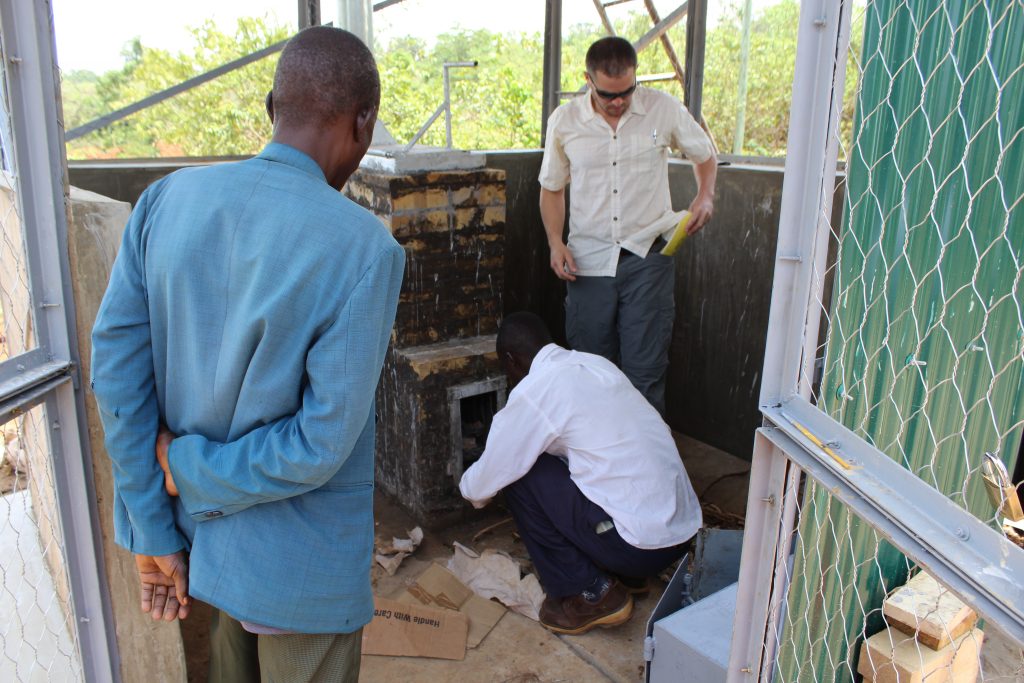

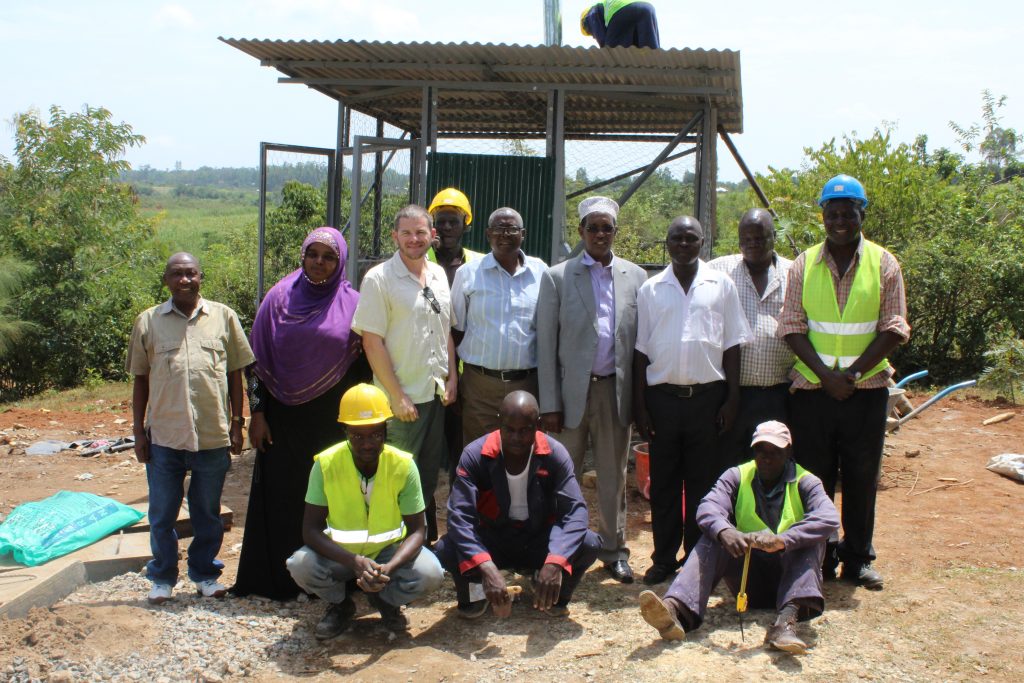
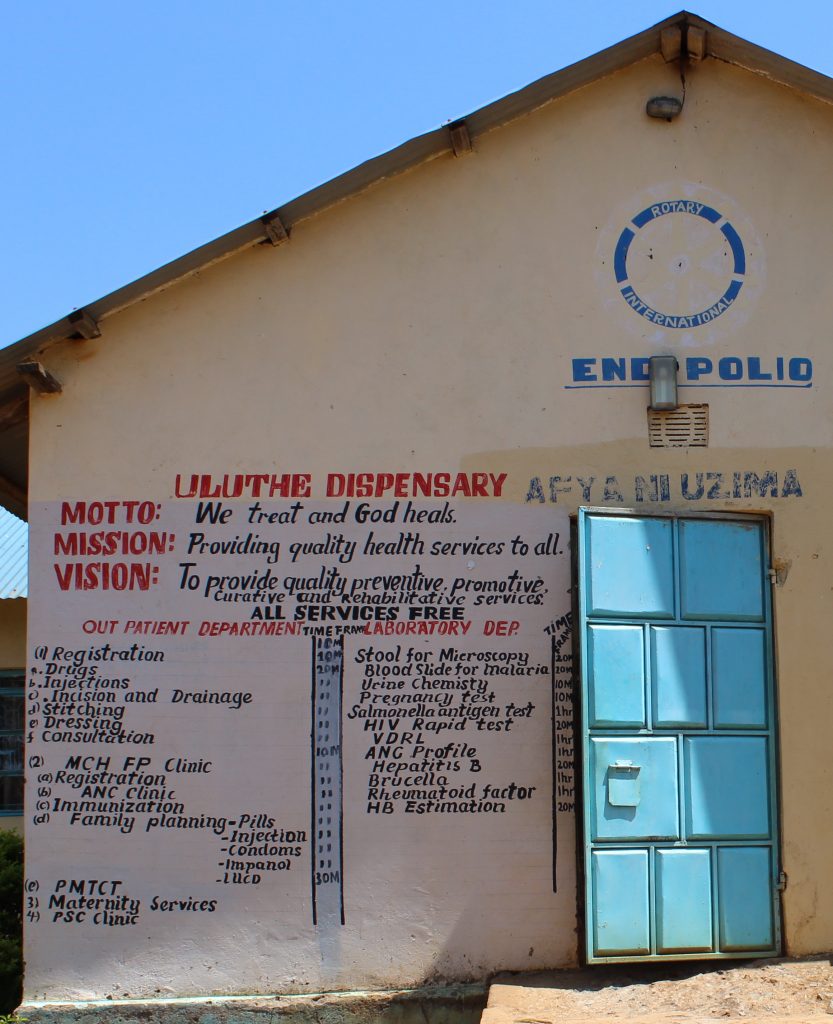
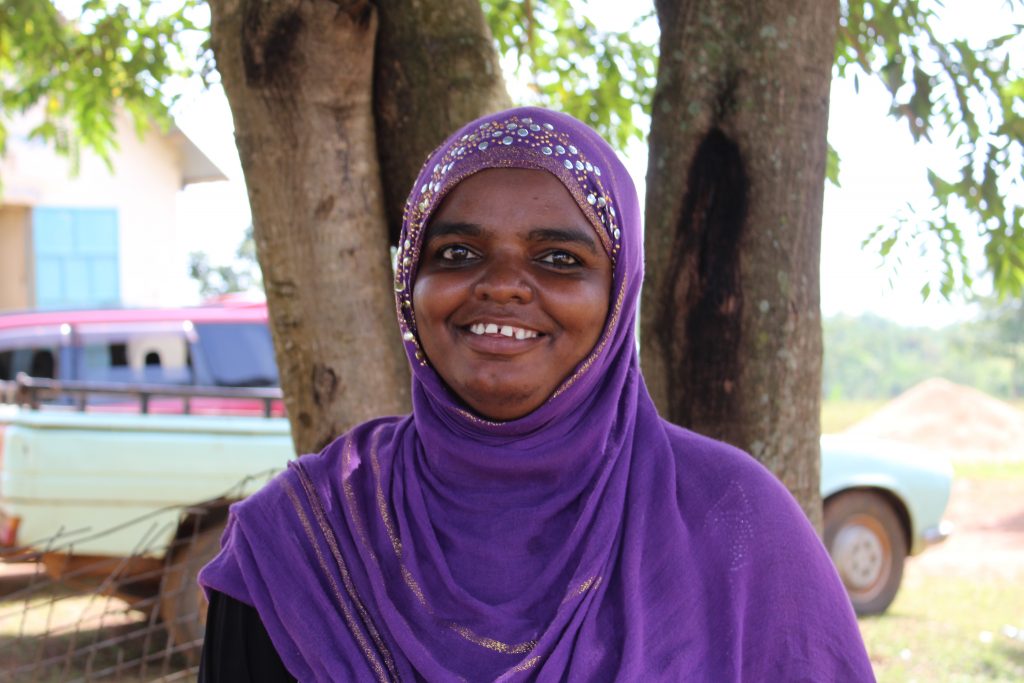
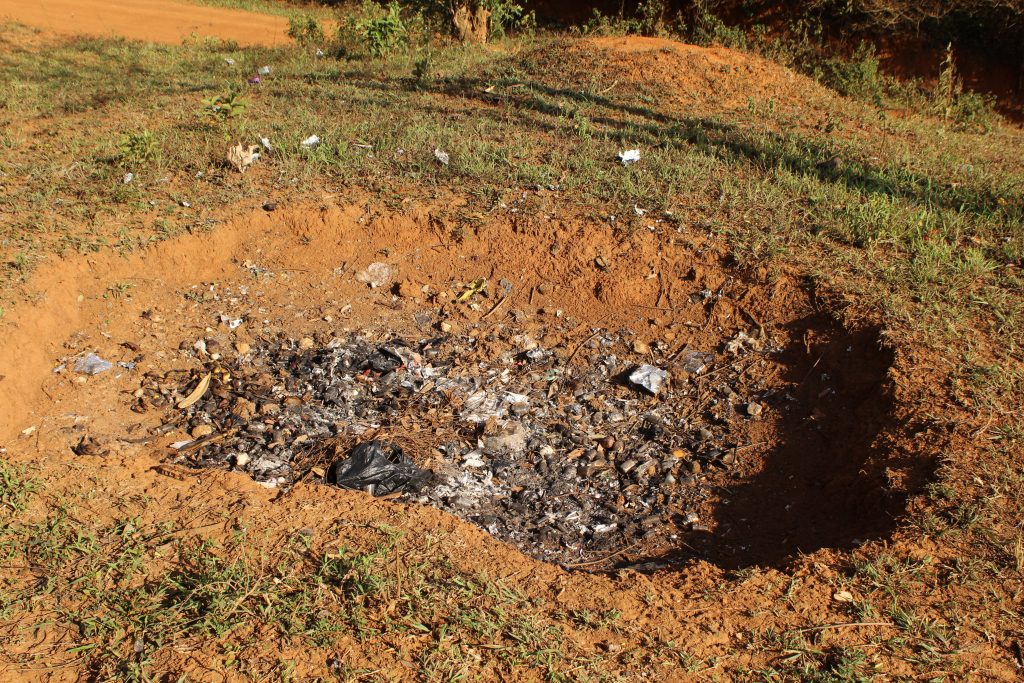
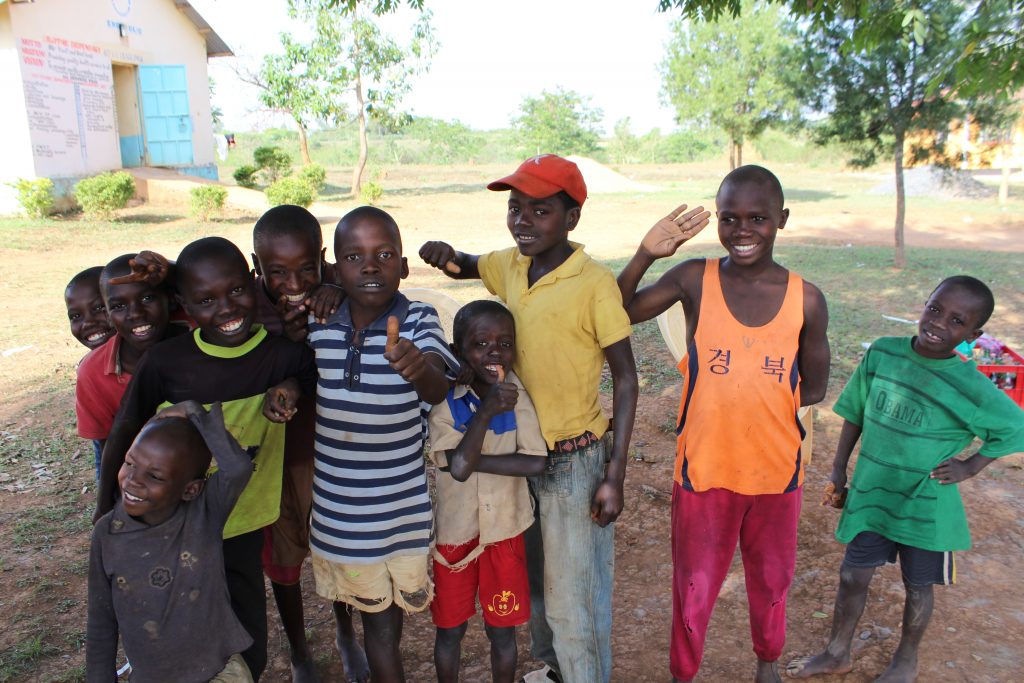
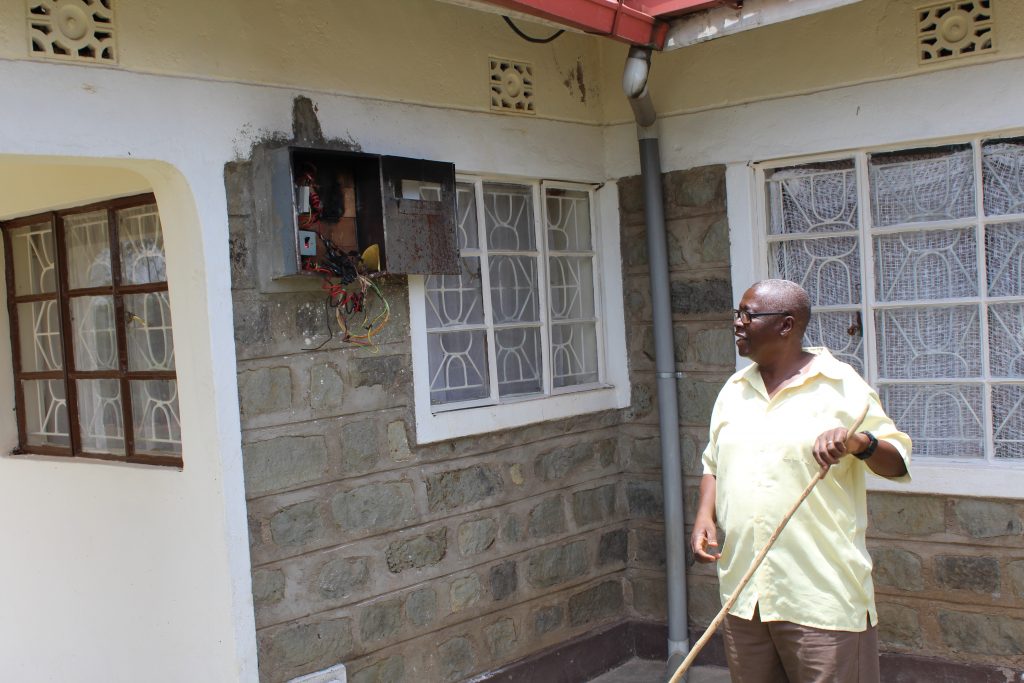
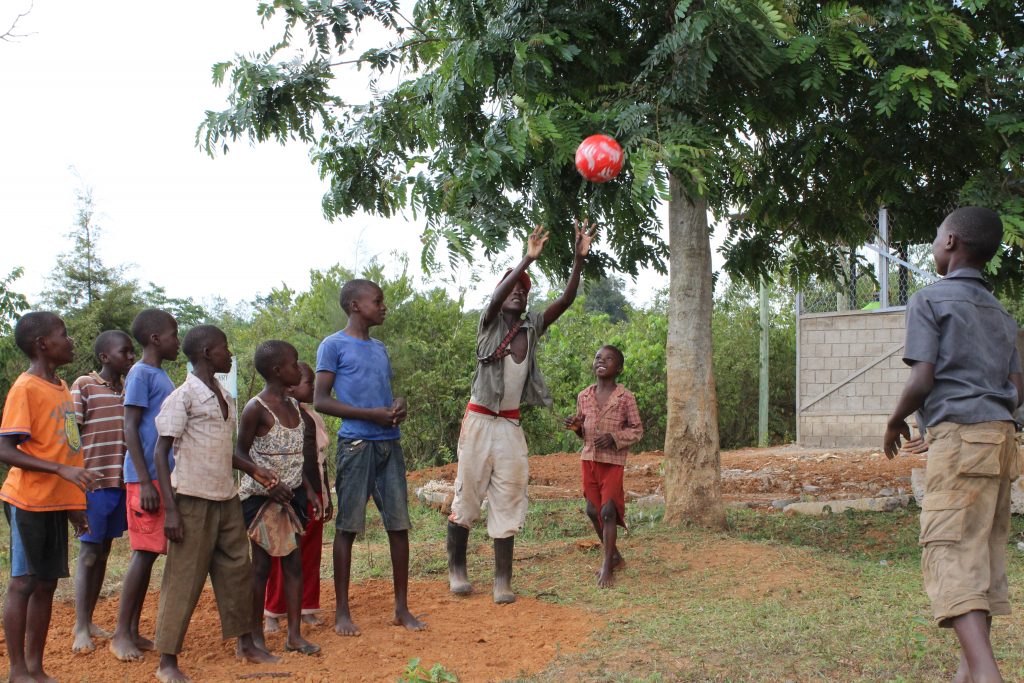
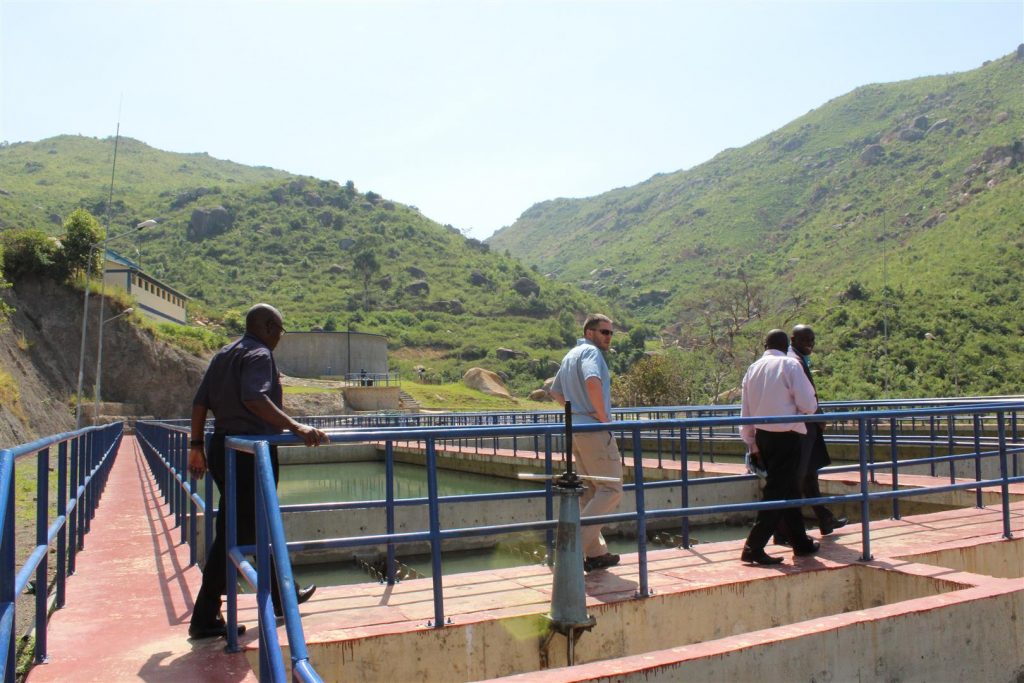
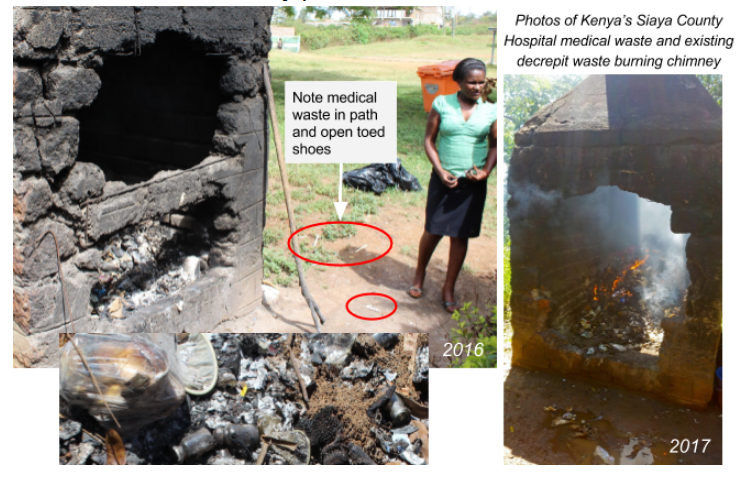
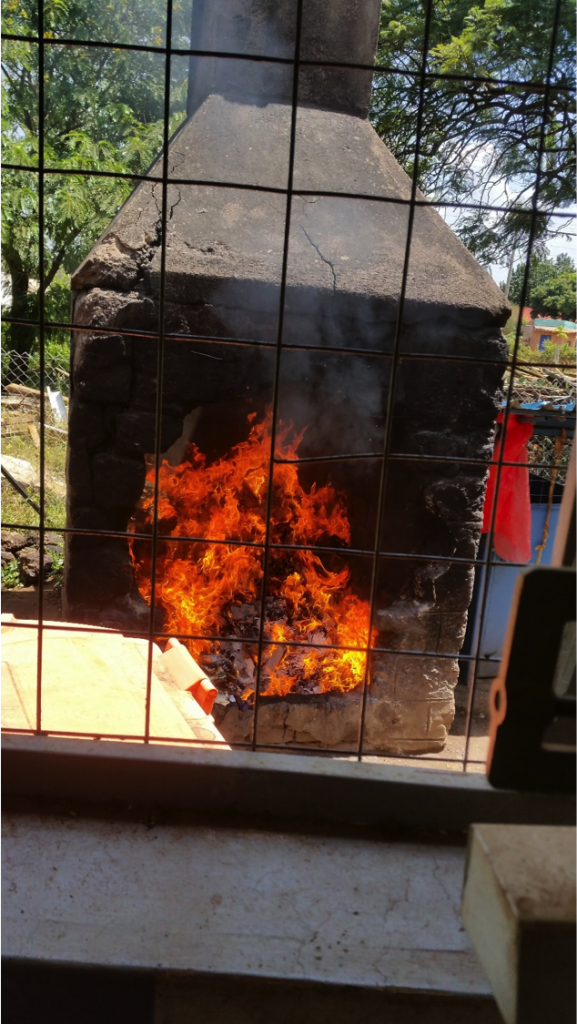
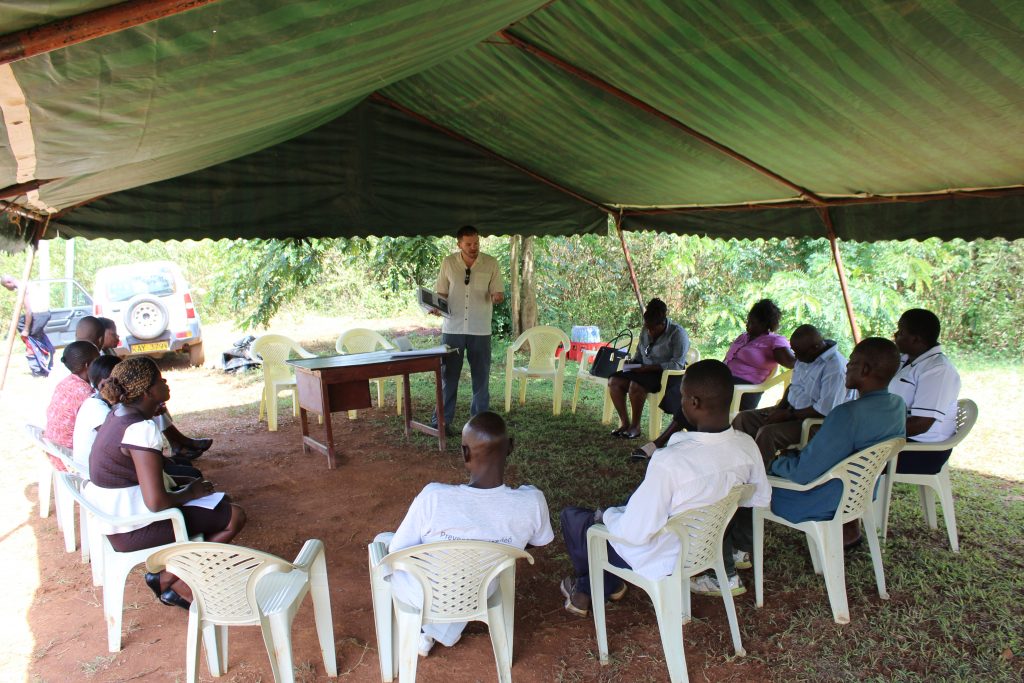
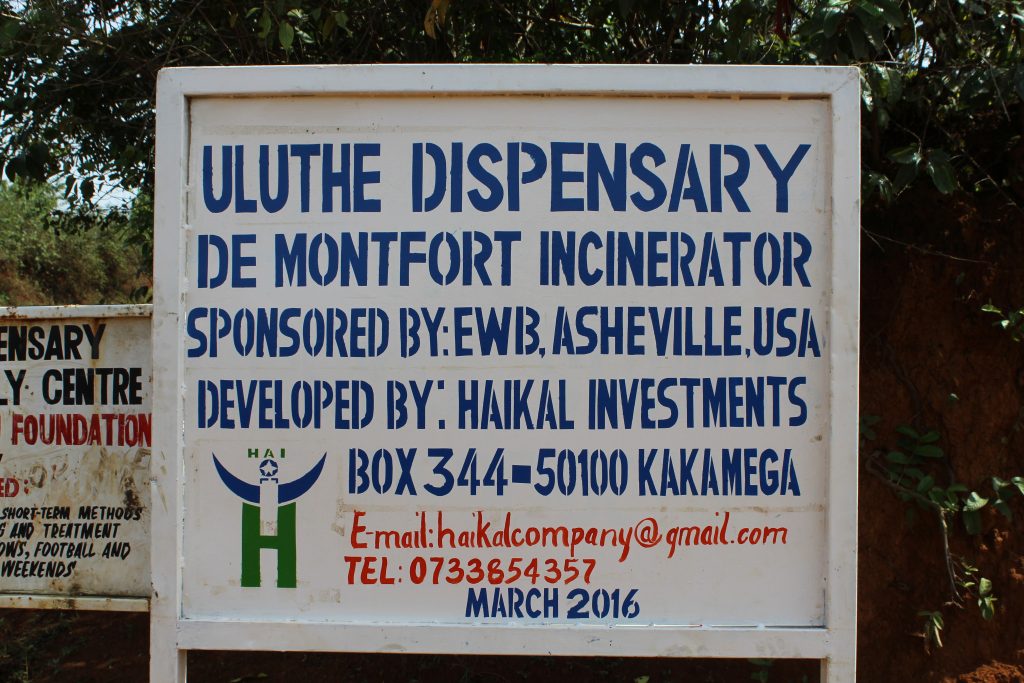
2 Replies to “Part 1 of 2 – Dispatches from Kenya – March/April 2016”
Comments are closed.